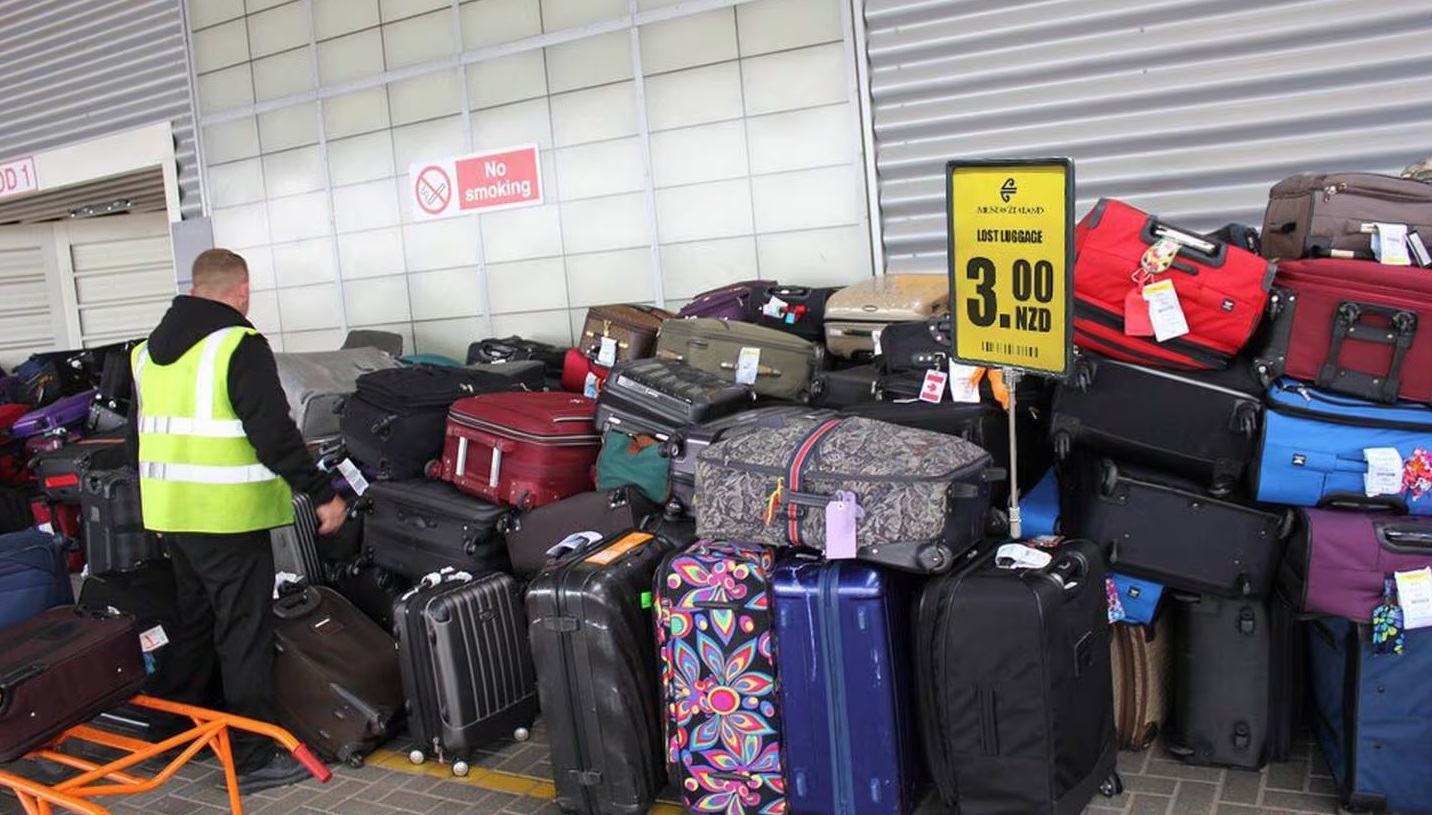
In the Facebook scam people are offered unclaimed suitcases for $3 each. The scammers claim to be freeing up warehouse space, saying they need to move thousands of lost suitcases.
Photoshopped pictures of dozens of suitcases feature Air New Zealand and Auckland Airport logos and signs.
The posts pop up on Facebook and have been sent to various community pages. Most page administrators are now refusing to approve them as they recognise them as a known scam.
In the comments the scam continues with fake profiles claiming to be happy customers showing pics of opened suitcases with expensive shoes, perfumes and toiletries.
At least two people on one community page said they had fallen for the scam and already had more than $80 taken from their credit card.
An Auckland Airport spokeswoman said they became aware of the scam in October and had reported it to Meta, which owns Facebook and Instagram, on several occasions.
“We have since reported the page again, but unfortunately it’s an ongoing issue,” the spokeswoman said.
“We recognise scammers are persistent and pages often reappear shortly after being reported.”
Auckland Airport asked that Facebook users look for the blue verification tick after their username to ensure they were dealing with Auckland Airport and not a scammer.
“Scammers are good at creating fake social media accounts, websites and emails that are often hard to tell from the real thing – by checking for the blue verification tick you know you are dealing with Auckland Airport’s official social media accounts.
“We also ask you don’t accept friend requests or buy from social media pages pretending to be us.”
Air New Zealand said it was monitoring social media pages for the scam posts and had also reported pages to Meta.
“We wouldn’t ever sell lost or unclaimed luggage,” an Air New Zealand spokeswoman said.
One woman said she ordered a suitcase from the site for $3.19 but it never arrived. Days later more than $80 was taken from her account. She reported the fraud to her bank to stop further payments.
Others said they had done the same and had since reported the pages to Meta.
One man said he was about to order three suitcases before Christmas but by chance saw a New Zealand Herald news article warning of the scam.
“There was no delivery charge so I thought there was nothing to lose but they probably would have cleaned out my savings.”
How to avoid being ripped off:
Stop all contact with the scammer
Once you realise you are being scammed, do not continue the conversation. Hang up the phone. Don’t reply to emails or letters scammers send. If you have been scammed online, block the scammer from contacting you.
Do not make any more payments
Some scammers target people caught in recent scams, such as pretending to be an enforcement agency that can return all your money for a fee. Don’t give money to anyone on the promise they will get your lost money back.
Contact the bank or service you sent money through.
If you are the victim of a financial scam, credit card scam or identity theft, contact your bank immediately. The sooner your bank knows about it the greater the likelihood of getting the money back.












